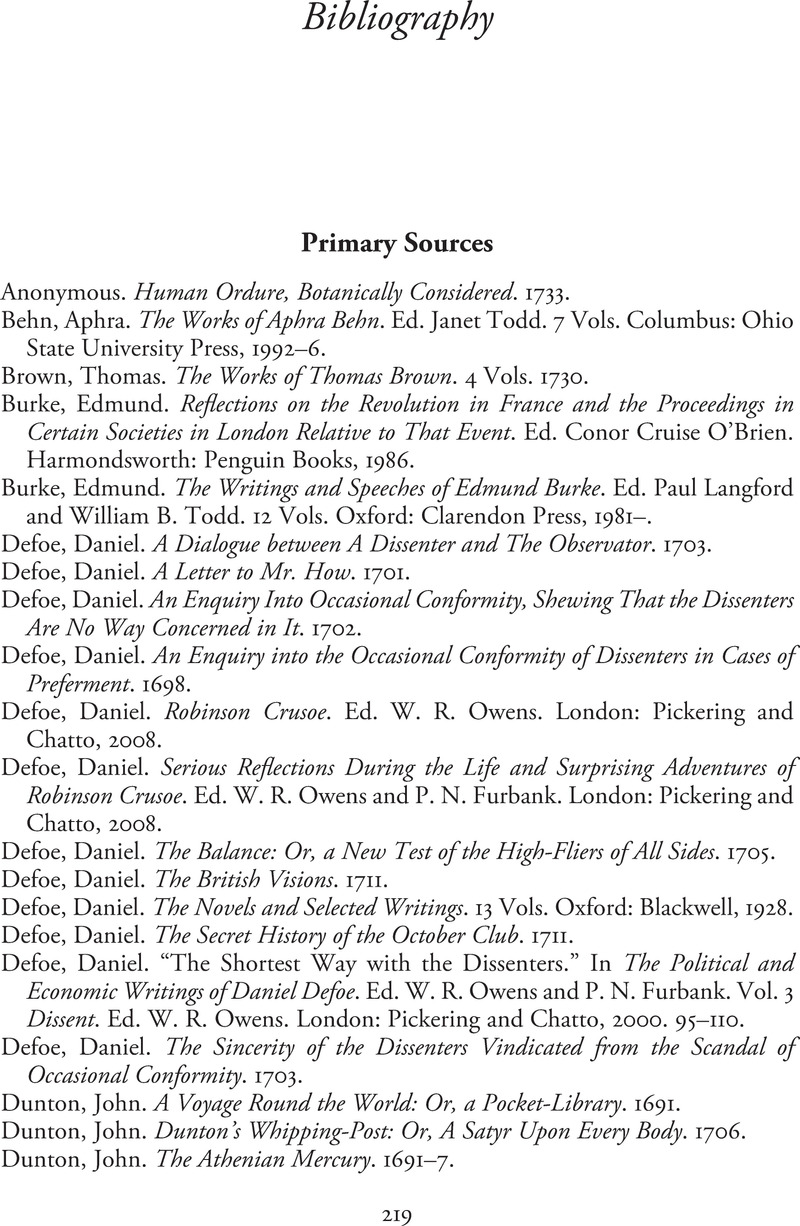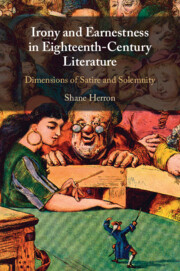Book contents
- Irony and Earnestness in Eighteenth-Century Literature
- Irony and Earnestness in Eighteenth-Century Literature
- Copyright page
- Dedication
- Contents
- Acknowledgments
- Abbreviations
- Introduction On Ludicrous Solemnity
- Chapter 1 Swift and the Hacks
- Chapter 2 “By One of the Fair Sex”
- Chapter 3 Keeping Up Appearances
- Chapter 4 Dark Humor and Moral Sense Theory
- Chapter 5 Gratitude for the Ordinary
- Epilogue Earnest Satire, Cynical Credulity, and the Task of Irony
- Notes
- Bibliography
- Index
- References
Bibliography
Published online by Cambridge University Press: 19 January 2022
- Irony and Earnestness in Eighteenth-Century Literature
- Irony and Earnestness in Eighteenth-Century Literature
- Copyright page
- Dedication
- Contents
- Acknowledgments
- Abbreviations
- Introduction On Ludicrous Solemnity
- Chapter 1 Swift and the Hacks
- Chapter 2 “By One of the Fair Sex”
- Chapter 3 Keeping Up Appearances
- Chapter 4 Dark Humor and Moral Sense Theory
- Chapter 5 Gratitude for the Ordinary
- Epilogue Earnest Satire, Cynical Credulity, and the Task of Irony
- Notes
- Bibliography
- Index
- References
Summary

- Type
- Chapter
- Information
- Irony and Earnestness in Eighteenth-Century LiteratureDimensions of Satire and Solemnity, pp. 219 - 234Publisher: Cambridge University PressPrint publication year: 2022



